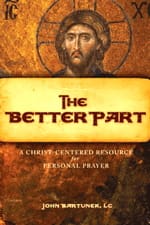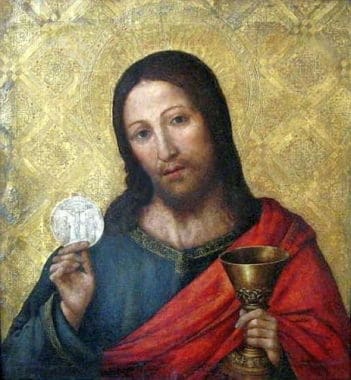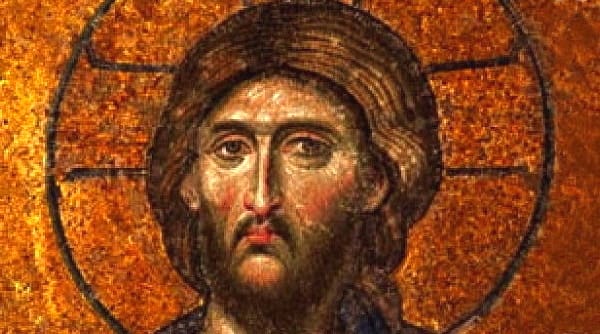“This sacrament is operative to produce both love and union with Christ. The greatest showing of love is to give oneself as food.” – St. Albert the Great
 John 6:52-59: Then the Jews started arguing with one another: ‘How can this man give us his flesh to eat?’ they said. Jesus replied: ‘I tell you most solemnly, if you do not eat the flesh of the Son of Man and drink his blood, you will not have life in you. Anyone who does eat my flesh and drink my blood has eternal life, and I shall raise him up on the last day. For my flesh is real food and my blood is real drink. He who eats my flesh and drinks my blood lives in me and I live in him. As I, who am sent by the living Father, myself draw life from the Father, so whoever eats me will draw life from me. This is the bread come down from heaven; not like the bread our ancestors ate: they are dead, but anyone who eats this bread will live for ever.’ He taught this doctrine at Capernaum, in the synagogue.
John 6:52-59: Then the Jews started arguing with one another: ‘How can this man give us his flesh to eat?’ they said. Jesus replied: ‘I tell you most solemnly, if you do not eat the flesh of the Son of Man and drink his blood, you will not have life in you. Anyone who does eat my flesh and drink my blood has eternal life, and I shall raise him up on the last day. For my flesh is real food and my blood is real drink. He who eats my flesh and drinks my blood lives in me and I live in him. As I, who am sent by the living Father, myself draw life from the Father, so whoever eats me will draw life from me. This is the bread come down from heaven; not like the bread our ancestors ate: they are dead, but anyone who eats this bread will live for ever.’ He taught this doctrine at Capernaum, in the synagogue.
Christ the Lord History is replete with kings and emperors who put up with no opposition. If the subjects of Ivan the Terrible had ever been caught “arguing with one another” about the veracity or wisdom of one of his declarations, they would have met with a quick and speedy death. But Jesus leaves each one free to accept or reject him, to trust him or abandon him. Our Lord is all-powerful, but he refuses to abuse his power; he called the Jews to believe in him and follow him – just as he calls each one of us – but he never forces us. His is a Kingdom of justice, but also one of love.
Jesus describes himself as being sent from the Father, as sharing the very life of Father. Christ is a man, and he is God. These are remarkable claims. But they don’t stop there. He claims that he will give his own flesh as our food, so that we might enter into that divine life as well. We will remain men and women, but we will have the life of God within us. Jesus claims a Lordship unlike any ever claimed before or since. He is Master both of earth and of heaven; he is the Lord of both human and divine life. No wonder his claims caused his listeners to argue amongst themselves; it is no ordinary thing to believe in such a Lord.
Christ the Teacher Great teachers know that “repetition is the mother of learning,” as the old saying goes. If they deem a certain lesson more important than others, they will repeat it over and over again, in different ways perhaps, until the students pick it up. In this discourse, responding to his audience’s understandable difficulty in grasping how it will be possible for all of them to “eat his flesh,” Jesus clarifies what he means.
 This was the perfect opportunity for Christ to say, “Wait a minute, what I really meant was that my body and blood will just be symbolized by bread and wine. Of course I didn’t mean that bread and wine really would become my body and blood. Don’t be foolish!” The strange thing is he doesn’t say that. He does not water down his claim, as if eating his flesh were just a metaphor for believing in his doctrine; on the contrary, he reiterates the importance of really eating his flesh and drinking his blood. Seven times throughout his speech he repeats that his flesh is to be eaten and his blood to be drunk by those who wish to have eternal life. Seven times. None of his listeners concluded that he was speaking with poetic imagery; they all understood him to mean what he said. Many of them did not accept it, and they abandoned him. Those who stayed were rewarded much later, when at the Last Supper Jesus showed how this strange saying was to play out: through the Sacrament of the Eucharist – his flesh made into our food, his blood made into our drink, so as to flood this dying world with the eternal life of God.
This was the perfect opportunity for Christ to say, “Wait a minute, what I really meant was that my body and blood will just be symbolized by bread and wine. Of course I didn’t mean that bread and wine really would become my body and blood. Don’t be foolish!” The strange thing is he doesn’t say that. He does not water down his claim, as if eating his flesh were just a metaphor for believing in his doctrine; on the contrary, he reiterates the importance of really eating his flesh and drinking his blood. Seven times throughout his speech he repeats that his flesh is to be eaten and his blood to be drunk by those who wish to have eternal life. Seven times. None of his listeners concluded that he was speaking with poetic imagery; they all understood him to mean what he said. Many of them did not accept it, and they abandoned him. Those who stayed were rewarded much later, when at the Last Supper Jesus showed how this strange saying was to play out: through the Sacrament of the Eucharist – his flesh made into our food, his blood made into our drink, so as to flood this dying world with the eternal life of God.
Christ the Friend Love gives itself; it shares itself completely. Christ loves to the extreme: he gives us his own life. He shares with us his own divine existence – “Whoever eats me will draw life from me.” This is the meaning of the Eucharist, which the Church calls the “source and summit” of Christian life. It is the sacrament of love par excellence, because there Love makes himself available 24/7. We will never be able to comprehend exactly how it happens, but we know that it does happen, and we know why: so that we will “live forever.” In the face of such love, the only appropriate response is to humbly accept this precious gift, relish it, and give our own love in return.
Jesus: When your friends go away, you often give them a gift or a keepsake to remember you by; when I returned to heaven, I left you my very self to remember me by. When you are separated from friends for extended periods, you occasionally make yourself present to them through letters and calls and e-mails; while I am reigning in heaven, I stay with you all the time in the Tabernacle. You may think that my love is kind of generic, because the Eucharist is so simple and ordinary, and because everyone gets the same kind of host. But that’s not how it is at all. I am fully present in every host. And each one of you receives me personally from the hands of the priest – one-on-one. And don’t forget that I am God, so nothing limits my love – not time, not space, not tiredness, not bad moods, nothing: I love you as if you alone were loveable. When I come to you in Holy Communion, and when I wait for you in the Tabernacle, all my thought and all my desire is focused on you. I know it’s hard for you to understand this, but it’s true. Think about me waiting for you there in the Tabernacle, interceding for you, offering myself for you at every moment… for you. You never have to doubt my love again.
Christ in My Life Thank you for creating me free and respecting my freedom. Because you made me free, I can love, and in loving, I come to resemble you and enter into your friendship. O Lord, purify my heart. Help me to choose more often, more definitively, and more passionately to give myself to those you have put under my care. I want to love with all the force of my freedom, just as you do…
Bread is such a simple food, Lord. It’s so normal, so basic. And that’s how you come to me. O Lord, open my eyes so that I will see you as you truly are in this mysterious sacrament. And open my eyes so that I will see you as you truly are, present and active in the normal, basic activities and events of my life. You came to walk with me and accompany me through life. I don’t want to walk alone anymore…
I want to be like the Eucharist. I want my life to nourish the hearts and souls of those around me. I want to pour out all my energy, all my talent, and all my love for the sake of your Kingdom, bringing others closer to you and closer to the happiness you created them to enjoy. How can I give myself more? How can I be more like you? Teach me to do your will, Lord, and to seek first your Kingdom…
PS: This is just one of 303 units of Fr. John’s fantastic book The Better Part. To learn more about The Better Part or to purchase in print, Kindle or iPhone editions, click here. Also, please help us get these resources to people who do not have the funds or ability to acquire them by clicking here.
+
Art for this post on John 6:52-59: Cover of The Better Part used with permission. Christ with the Host, Paolo da San Leocadio, 4th quarter of 15th century, PD-US author’s life plus 100 years or less, Wikimedia Commons.


